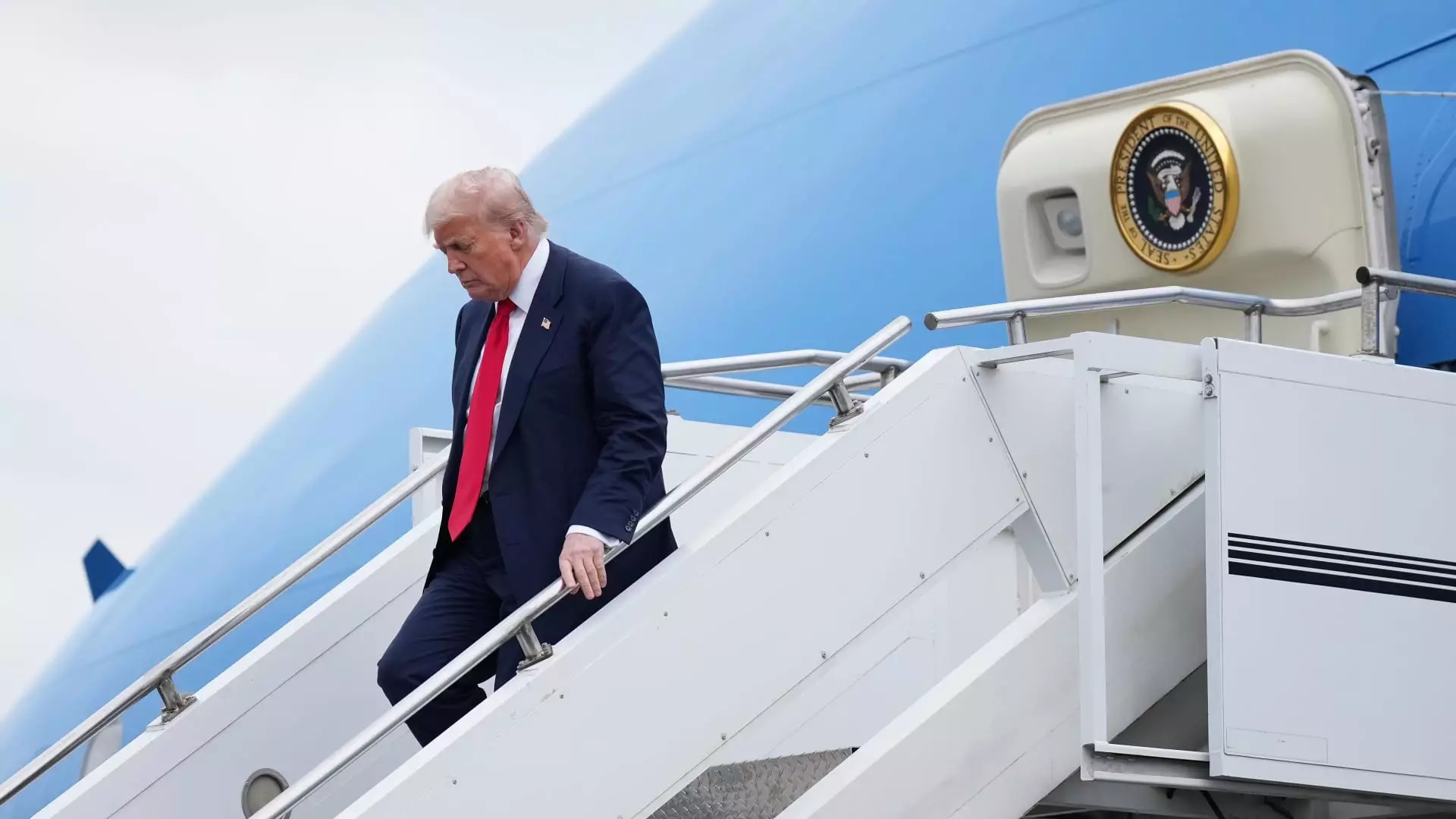The upcoming meeting between European Commission President Ursula von der Leyen and U.S. President Donald Trump in Scotland exemplifies the precarious state of transatlantic relations. While officials spin hopes of a diplomatic breakthrough, the reality reveals an underlying game of brinkmanship fraught with uncertainty. Both sides are engaging in a high-stakes poker match where economic stability is the chip at stake. In this scenario, the veneer of collaboration masks a deeper concern: a reckless pursuit of short-term advantage that risks plunging not just the EU and US, but the entire global economy into chaos.
Trump’s flirtation with imposing a 30% tariff on EU imports is not merely a tactical move but emblematic of a larger strategy rooted in protectionism and nationalistic bravado. Meanwhile, the EU’s cautious approach, veering toward negotiations for a 15% tariff, underscores how misguided and shortsighted these negotiations are. These tariffs, if enacted, threaten to undermine the very fabric of international trade that has historically propelled economic growth and stability.
The core flaw in this process lies in the assumption that economic disputes can be resolved through aggressive tariffs and brinkmanship without long-term repercussions. The U.S. and EU, accounting for nearly 30% of global trade and 43% of GDP, are not standalone entities; their actions ripple across the entire world economy. Such aggressive posturing risks igniting a broader trade war, one that could have devastating consequences for workers, consumers, and small businesses on both sides of the Atlantic.
The Danger of Short-Sighted Bargaining and Its Global Consequences
Rather than pursuing genuine cooperation, both parties seem to be operating from a position of distrust and competitive hostility. This approach ignores the real benefits that an open and cooperative transatlantic relationship has historically provided—such as innovation, job creation, and economic resilience. Instead, the current narrative promotes a zero-sum view where any gains are perceived as losses, leading to a cycle of retaliation and escalation.
The recent signing of a U.S.-Japan trade deal with a baseline 15% tariff reflects a troubling trend: a shift towards accepting suboptimal deals simply to avoid full-blown confrontation. Jack Allen-Reynolds’s skepticism about a comparable EU-U.S. agreement being “a good deal” rings true. It appears policymakers are settling for “lesser evils,” comfortable with temporary relief rather than seeking sustainable, mutually beneficial arrangements. This mindset jeopardizes the collaborative spirit essential for addressing complex global issues like climate change, digital transformation, and geopolitical stability.
From a center-wing liberal perspective, this is not merely a matter of economic pragmatism but a question of moral responsibility. The pursuit of unilateral advantage at the expense of multilateral norms compromises the diplomatic foundation upon which long-term peace and prosperity depend. If the EU and US continue down this path, the risk is not just economic recession but a loss of faith in the very institutions that have sustained post-World War II international order.
The Illusory Promises of “Deal-Making” in a Bipolar World
Political theater aside, the narrative of a “big deal” – whether in the form of a 15% tariff or a shiny new trade agreement – often obscures the profound structural issues lurking beneath. The hype surrounding Trump’s boast of “perhaps the largest deal ever made” with Japan reflects a troubling tendency to equate size with significance, ignoring the quality and fairness of such agreements.
Honest assessment reveals that these deals are increasingly driven by populist and nationalist sentiments rather than genuine global cooperation. They serve more as political symbols than as engines of economic growth. The assumption that a modest tariff cut or a superficial deal can compensate for deeper structural problems—such as supply chain vulnerabilities, climate commitments, or digital sovereignty—is fundamentally flawed.
In this context, the European Union faces a choice: continue to allow short-term political wins to dictate trade policy or champion a more disciplined, values-based approach that prioritizes fairness, environmental standards, and the long-term health of the global economy. Settling for aggressive tariffs and toxic negotiations risks entrenching economic inequality and undermining the multilateral framework that has sustained prosperity for decades.
By pursuing aggressive, risk-laden negotiations under the false hope of quick gains, the US and EU threaten to unravel the intricate web of cooperation that has historically underpinned global stability. The true cost of this approach will not be borne by politicians or corporations but by everyday workers and ordinary citizens who depend on predictable, fair trade policies that respect both economic and social imperatives.



Leave a Reply